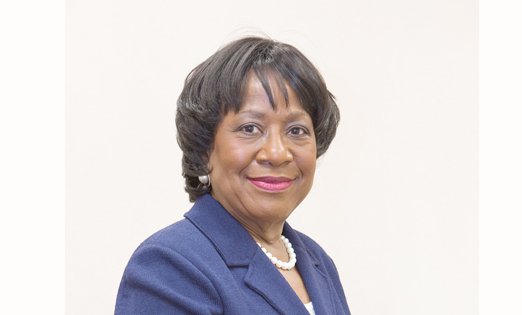VSU rejects critical state audit
Jeremy M. Lazarus | 6/12/2015, 12:23 a.m.
Virginia State University has politely, but firmly rejected many of the findings in a scathing state audit and ignored others in stoutly defending its financial practices.
The 133-year-old historically black university was put on the hot seat when a draft copy of the state auditor’s report for the fiscal year that ended June 30, 2014, was provided to the Free Press and other media.
Interim VSU President Pamela V. Hammond issued a mild public statement accepting the critical audit that was made official last week — just a few weeks before the current fiscal year 2015 closes on June 30.
But she and her staff took a different, tougher tack in the school’s written response that is included with the 2014 audit. The audit spotlighted problems that arose during the tenure of Dr. Keith T. Miller, who resigned as president last fall, and VSU’s former chief financial officer, David J. Meadows.
Rather than throwing his predecessor under the bus, the school’s current chief financial officer, Kevin Davenport, directly challenged the auditor’s findings in VSU’s response to the report.
For example, Mr. Davenport rebuffed the auditor’s claim that VSU risked having to heavily subsidize its cafeteria operations because it might not sell enough meal plans to students to cover its contractual obligation to the provider, Thompson Hospitality.
“The goals of the food services contract are realistic and attainable,” Mr. Davenport, VSU vice president for administration and finance, stated.
Under Thompson’s new contract that goes into effect July 1, the auditor noted the school must make up the difference if it does not sell 2,800 meal plans per semester to students or at least 400 more meal plans than were sold per semester in the 2014 fiscal year.
Mr. Davenport rejected the auditor’s concern. He stated that the university has had only one year in the past decade when sales were lower than forecast, and he noted the university recognized the situation, found the “root causes and (has) implemented the appropriate operational changes.”
He also dismissed the auditor’s statement that VSU under Dr. Miller flouted state purchasing rules in awarding dozens of contracts without seeking bids, potentially ballooning costs.
Mr. Davenport stated that VSU scrupulously followed state rules and noted that “files in the purchasing office can substantiate that (each) sole-source award was the appropriate method.” He stated those files contain all of the mandatory paperwork justifying the awards, implying that the team from the state auditor’s office that reviewed VSU’s finances never properly checked.
In addition, Mr. Davenport stated that the auditor’s complaints about the hiring of an academic consultant and an enrollment marketing firm did not pass muster. However, Mr. Davenport did not address the auditor’s findings that VSU had failed to spell out the work both firms were to do or to properly oversee their work to ensure they were accomplishing specific, measurable objectives.
The 2014 audit report also suggested VSU might need to raise student fees to keep its new $84 million convocation center and basketball gym solvent. Based on a 2012 projection, the auditor expressed concern that operating revenues might be too low to cover expenses after the center opens later this year.
Mr. Davenport indicated the auditor was completely off base and relied too heavily on outdated figures. “Current negotiations suggest that revenues (will be) consistent with prior analysis, but expenses (will be) significantly lower,” he stated in insisting that VSU is on top of the situation as it seeks to hire a facility operator.
He also politely scolded the auditor for suggesting the school had failed to complete a physical inventory and might be unable to locate 5,000 items.
“An inventory of all university-owned capital assets was conducted, and all necessary documents to support this activity were provided to the audit team,” Mr. Davenport wrote. He promised that VSU would do a better job next time to ensure the audit team receives the correct paperwork to avoid mistaken conclusions.
Mr. Davenport also criticized the auditor for using outdated information to suggest VSU was not putting enough money aside to pay for needed maintenance.
He wrote that VSU’s portfolio of buildings, particularly its dorms, has changed due “to an aggressive construction program that has taken failing properties offline and replaced them with new facilities.” Going forward, he said the university will make sure it has “adequate reserves” to cover maintenance costs.
Most notably, the school did not respond to the auditor’s finding that foundations associated with the school were failing to reimburse VSU when school employees completed work for the foundations.
In an effort to ease any tensions the tart response might have created, Mr. Davenport wrote in the final paragraph that VSU “is committed to addressing these audit findings and recommendations (and) would like to thank you and your staff for your continued collaboration and support.”







